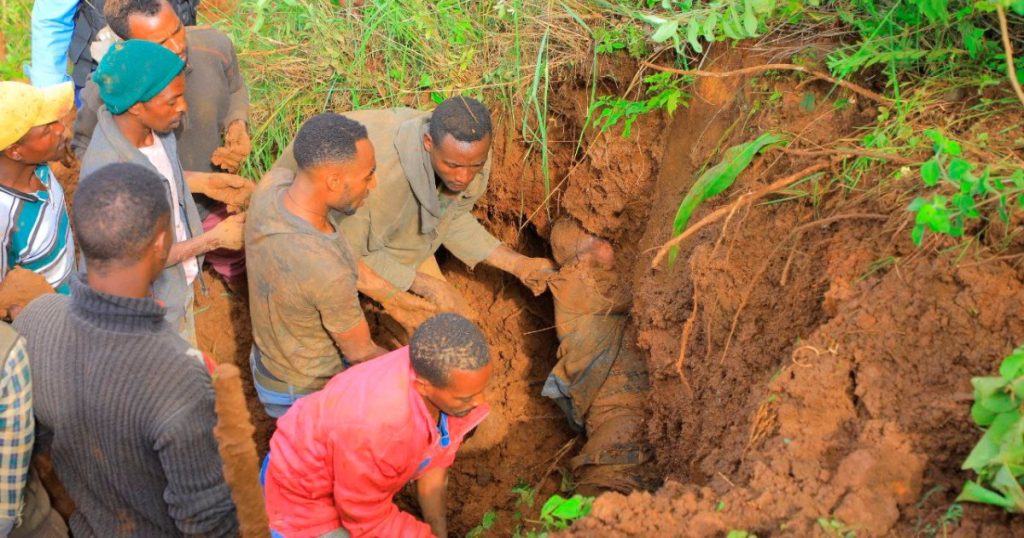The United Nations Office for the Coordination of Humanitarian Affairs (OCHA) has reported that the death toll from landslides in Ethiopia has risen to 257, with expectations that the final toll could reach 500. The landslides occurred in the mountainous Gofa zone in southern Ethiopia after heavy rains triggered the disasters. The revised death toll is higher than originally reported by Ethiopia’s National Disaster Risk Management Commission, showing the severity of the situation.
After the landslides, hundreds of people were searching through the red mud in Kencho Shacha for survivors of the deadliest landslide in Africa’s second most populous country. More than 15,000 affected individuals are in need of evacuation, including over 1,300 children and 5,293 pregnant women and new mothers. The situation was worsened by the fact that many of those killed were trying to assist people in a house hit by the initial landslide, including local administrators, teachers, and health professionals.
The terrain in southern Ethiopia has been saturated by seasonal rains, making the area more vulnerable to landslides. In addition to the landslides, flooding and displacement have been reported due to heavy rains from April to early May. OCHA noted that floods affected over 19,000 people in various zones, displacing more than 1,000 individuals and causing damage to livelihoods and infrastructure. This environmental impact comes at a time when the country is also facing severe drought conditions, leading to food insecurity among traditional herding communities.
The United Nations highlights the interconnected nature of climate-related challenges in Ethiopia, with millions of people facing malnutrition due to these environmental factors. The combination of flooding, landslides, and drought presents a complex humanitarian crisis that requires urgent attention and support from the international community. The need for evacuation of thousands of affected individuals underscores the scale of the disaster and the importance of coordinated efforts to address the immediate and long-term consequences of the landslides.
Efforts to mitigate the impact of the landslides and flooding in Ethiopia will require a multi-sectoral response, focusing on evacuation, search and rescue operations, and provision of humanitarian assistance to those affected. The loss of lives, including community leaders and professionals, highlights the devastating effects of natural disasters on vulnerable populations. The UN and other humanitarian agencies are working to mobilize resources and support to address the urgent needs of those affected by the landslides in southern Ethiopia and to prevent further loss of life as a result of the ongoing environmental challenges facing the country.













